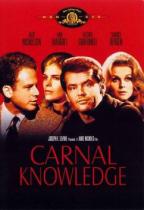Members
Stats
Users Online Users: 0 Users: 0 Guests: 85 Guests: 85 Total: 85 Total: 85 |
Lola rennt, a review by goodguy
Cover Blurb: Manni (Moritz Bleibtreu), who works as a small-time courier for a big-time gangster, is in huge trouble. He has accidentally left the cash from a mob deal on the subway, and he has only twenty minutes to deliver the 100,000 marks to his unforgiving boss. Desperate, he calls his girlfriend, Lola (Franka Potente), the only person who can rescue him form certain death. As the seconds tick away and the tiniest choices become life altering, Lola must try to reach Manni before the line between fate and fortune begins to blur. One story told from three different perspectives, Run Lola Run is a veritable maze of intriguing plot twists and heart-stopping suspense in a high-octane thrill ride about one woman's desperate attempt to save her lover.review, I decided to round up. Frankly, Jon's reaction surprised me, because "Run Lola Run" bridges the gap between experimental arthouse cinema and mainstream with a postmodernist approach that is not entirely unlike the early movies of Tarantino. Of course, Tykwer is less violent, a little more philosophical, a lot more puristic, and his hommages (which are actually just little nods) to other movies show a better taste. Now, is RLR the best video game adaptation without being based on any actual game, a cross between "Groundhog Day", Godard's "Breathless" and "Wonder Woman", a philosophical meditation on fate and chance, or a portrait of the reunited Berlin, completely in flux? Well, it is all that and probably more, but while the movie certainly isn't without depth, it also works on a strict surface level as a fantasy of wish fulfillment that is pure Hollywood. Add to that an iconic female lead, true love that conquers all and a few thriller elements, and you are in for a fun ride. Right from the start, the prolog ironically alternates between both choices. T. S. Elliot versus Sepp Herberger, a narrator waxing philosophically only to be dismissed by more football platitudes from a guy in uniform. The plot and the backstory are given in the initial phone conversation between Lola and Manni that gets more and more hysterical until Lola's first glass-shattering scream. Then it's mission time for Lola. 20 minutes to get the money from her banker dad and to get to Manni before he robs a supermarket. Game on and Lola runs through Berlin to frantic techno music with spoken lyrics, Anne-Clark-style. If at first you don't succeed, repeat. Three times. That's pretty much all that happens. There is no narrative ballast, no character motivations, no further explanations, only encounters and exchanges, although the repetitions cleverly interlock, expand and, of course, change the happenings until the final outcome is achieved. That minimalist narrative is of course what makes RLR interesting, because while it keeps the basic framework of an escapist mainstream fantasy, it throws away all the exchangeable fillings. Tykwer uses different techniques and even different film materials to organize his story. Lola and Manni are shot on normal 35mm film, the flashbacks of Manni's initial backstory are in black and white, any scenes not involving those two are shot on video. As Lola runs into various people on her mission, a sequence of photographs shows flash-forwards to their future as generated by the ripple effect of Lola's actions. There is animation, there are split screens, an almost codified use of colors, dazzling camera moves that create a hyperkinetic visual style. The pacing and editing is flawless and the rhythm precise with ironic counterpoints and full stops, such as the sudden soap opera of Lola's dad and his mistress in the bank office. Each segment starts with the same scene Lola leaving the apartment (and her distracted mother). Then it turns into a cartoon of Lola running down a staircase and passing a guy with a dog on the way. That's her first obstacle and the first difference between the segments, with a strong hint how the segment will play out. The song lyrics do so as well. In the first run, she is determined, but she just passively reacts. In the second run she fights head-on, with no regards for herself or the people around her. In the third run she becomes completely in tune with what is happening around her, causing her to succeed. The final ending cannot be anything than a happy one, albeit again with a slightly ironic touch. Also, if you didn't pay attention to the bank security guard, you might have missed something. I'm glad Jon caused me to rewatch this; I had almost forgotten why I liked Tykwer once. I also posted a few remarks directly in response to Jon's review. And for a Berlin film that is the complete antithesis to RLR, I recommend Maria Speth's "In den Tag hinein" (AKA The Days Between). (From goodguy's Watch Log on July 19th, 2010) Carnal Knowledge, a review by Hal Title: Carnal Knowledge  Year: 1971 Director: Mike Nichols Rating: R Length: 98 Min. Video: Anamorphic Widescreen 2.35:1, Pan & Scan 1.33:1 Audio: English: Dolby Digital: Mono Subtitles: English, French Stars: Jack Nicholson Candice Bergen Art Garfunkel Ann-Margret Rita Moreno Plot: One of the most controversial movies of its time, this "thought-provoking" (Leonard Maltin ) comedy-drama from legendary director Mike Nichols (The Birdcage) is a funny, poignant look at relationships as seen through the eyes of two friends over a 20-year period. Superbly crafted by playwright Jules Feiffer, Carnal Knowledge is brimming with touching insights, sexy banter and powerful performances by three-time Oscar winner Jack Nicholson, Ann-Margaret, Candice Bergen and pop music icon Arthur Garfunkel. Jonathan (Nicholson) and Sandy (Garfunkel) are college roommates who share an endless fascination - and obsession - with women. As time goes by, their relentless pursuit for the joys of the flesh becomes more competitive. And more damaging. Soon, Jonathan and Sandy's lives become a vicious circle of girls, booze and unfulfillment, and they realize only too late that - in the war of the sexes they are their own worst enemy. Extras: Scene Access My Thoughts:  (From Carnal Knowledge on July 4th, 2010) Biography: Sylvester Stallone: The Rocky Road to the Top, a review by addicted2dvd
Stars: Peter Graves as Narrator Jackie Stallone as Mother Renee Link as Jackie's Sister James Colen as Childhood Friend Tony Robbins as Friend Charlie Flynn as Childhood Friend My Thoughts: After watching all the Rocky films, there was no way my brother and I couldn't watch this DVD with an episode of Biography that came with the Rocky Anthology box set. I always liked these documentaries... but this is one that I never seen before. I enjoyed it quite a bit. I learned quite a bit I never knew before... and I was reminded of things I completely forgot about. This is a fun watch... worth checking out. My Rating: Out of a Possible 5     (From Addicted2dvd's Random TV Series Watched on February 13th, 2013) |



 May 14, 2024, 03:07:56 PM
May 14, 2024, 03:07:56 PM
